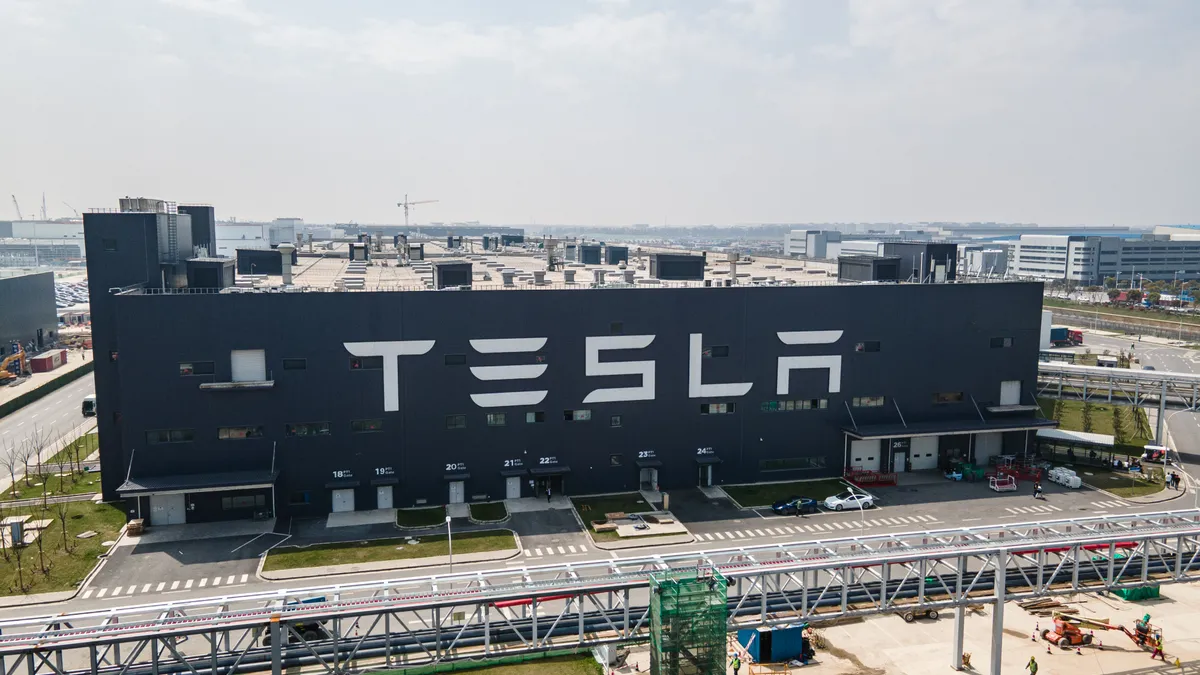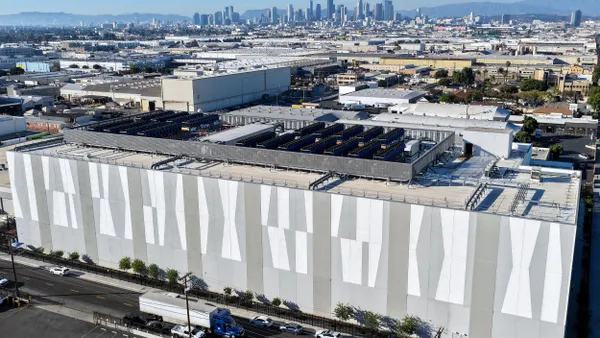Dive Brief:
- Tesla worked to mitigate the semiconductor shortage's effects on its electric vehicle production by substituting in alternative chips and writing new firmware, CEO Elon Musk said on the company's earnings call last week.
- Tesla held many calls with its suppliers to resolve shortages and find new chips, Musk said, but the company still had to make difficult production decisions due to the limited supply. Tesla prioritized car production over production of the Powerwall, a home battery that stores solar energy, during the quarter.
- "It was an incredibly intense effort of finding new chips, writing new firmware, integrating with the vehicle and testing in order to maintain production," Musk said, adding that writing the firmware took weeks to accomplish.
Dive Insight:
Tesla's growth for the remainder of the year "will be determined by the slowest part in our supply chain," Musk said. For Tesla and other automakers, that's finding enough semiconductors to meet production needs. Tesla is taking matters into its own hands by swapping in substitute chips.
This approach helped Tesla produce and deliver more than 200,000 electric vehicles in Q2, both record highs, according to its earnings presentation. The company did not say how many alternative chips it used in its production.
Despite the workaround, the semiconductor shortage is still limiting the company's production ceiling.
"The chip supply is fundamentally becoming a factor on our output," Musk said. "It is difficult for us to say how long this will last because … this is out of our control, essentially. It does seem like it's getting better, but it's hard to predict."
IHS Markit forecasts that the chip shortage will continue through the third quarter, and the Taiwan Semiconductor Manufacturing Company expects its capacity for semiconductors to remain tight into 2022 despite ramping up production.
Automakers beyond Tesla have faced had parts shortages that hobbled their production capabilities. Ford has limited or stopped production at several of its facilities throughout July due to the semiconductor shortage, and the company expects to lose 1.1 million units of production in 2021 as a result. Ford is shifting to leaner inventory and higher turn rates to handle the shortage, with car buyers using an ordering process for purchasing, CFO John Lawler said on the company's earnings call earlier this year.
Tesla wants the issue solved sooner rather than later, as additional workarounds to mitigate the chip shortage "may be difficult to sustain," the company said in its quarterly earnings report. Tesla temporarily shut down some factories due to parts shortages, Musk said.
Although he didn't specify the location or time of these shutdowns on the call, Musk said on Twitter in February that Tesla's factory in Fremont, California, had a two-day shutdown for this reason. He said on the call if Tesla addressed the shortages by building its own semiconductor fabrication plant, it would take between 12 and 18 months.
















